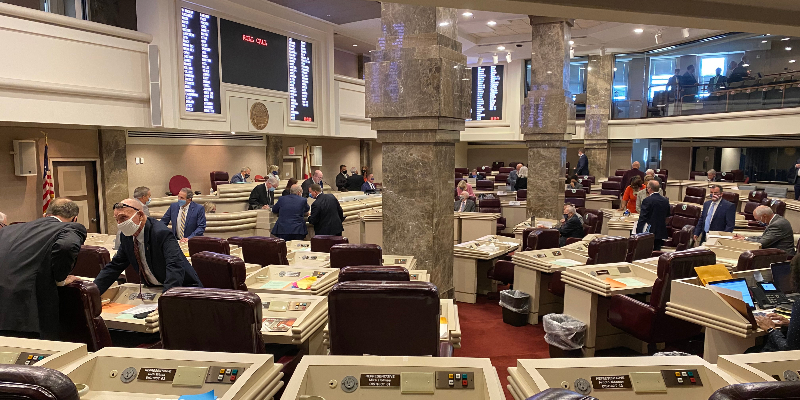Mobile, Ala. — Last month, the Alabama House of Representatives took an important step toward keeping some of our state’s most violent criminals off of the streets by passing House Bill 130, also known as “Aniah’s Law.” Now it’s time for our senators and the voters of Alabama to finish the job.
“Aniah’s Law” is an important reform bill that would give Alabama judges the option to deny pretrial bail to violent criminals who present a clear danger to our communities. This piece of legislation is named after Aniah Blanchard, a 19-year-old Homewood resident and college student who was kidnapped and killed in 2019 by a man who was out on bail for multiple violent felonies at the time.
The story of Aniah Blanchard’s disappearance and tragic death was featured on CBS News’ “48 Hours” this past weekend. The segment, “Fighting for Aniah,” also touched briefly on her family’s continued efforts to protect innocent Alabamians from repeat violent offenders. Currently, the Alabama Constitution does not allow judges to deny bail to repeat violent offenders in most circumstances — including those who, like the man accused of killing Aniah, have a documented history of violent criminal behavior.
While Aniah’s tragic story has recently reignited interest in keeping dangerous criminal offenders from being released on bail, this is an issue that has challenged law enforcement for years. Across the state, there are countless examples of police investigating and arresting violent criminals, only to see them immediately released on bail to inflict more harm on law-abiding citizens.
Accused criminals committing violent acts while out on bail has been a particular issue in Mobile. In fact, the sponsor of “Aniah’s Law,” Rep. Chip Brown, introduced the first version of this bill in 2018 after discussions with my administration, local judges and law enforcement leaders across Mobile County.
It was around that same time that a defendant in Mobile with a previous violent criminal conviction was released on bail after shooting two teenagers near a local community center. He went on to shoot three other people at a parade a few months later while he was awaiting trial and was granted bail again. The goal of “Aniah’s Law” is to prevent situations like this from happening.
The Alabama Constitution reads that “all persons” shall be eligible for a pretrial bail except for those facing capital offenses. As proposed, “Aniah’s Law” would add certain Class A violent felonies to that exception for pretrial bail, including heinous offenses like murder, kidnapping and rape.
In order to protect the constitutional rights of the accused, defendants would not automatically be prohibited from receiving bail under “Aniah’s Law.” Prosecutors would have to request a hearing and show that the evidence in their case is sufficient enough to support a conviction.
They would also have to show that a defendant is likely to reoffend if released on bail and there are no conditions of release that could reasonably protect the public. As always, Judges would still be able to grant bail if they found the evidence produced by prosecutors to be insufficient.
Right now, law enforcement officers and prosecutors across Alabama are facing 21st century threats with a Constitution that was written in 1901. That’s why my administration strongly supports the changes proposed in “Aniah’s Law” — a bill named after a young woman whose life very well could have been saved by these kinds of common-sense reforms.
My hope is that this legislation receives the same bi-partisan support it saw in the House as it is considered by our State Senate. And if “Aniah’s Law” passes and goes before people of Alabama in a statewide referendum, I hope you’ll vote “yes” and help us keep violent criminals off of our streets.
Sandy Stimpson is the mayor of Mobile, Alabama













